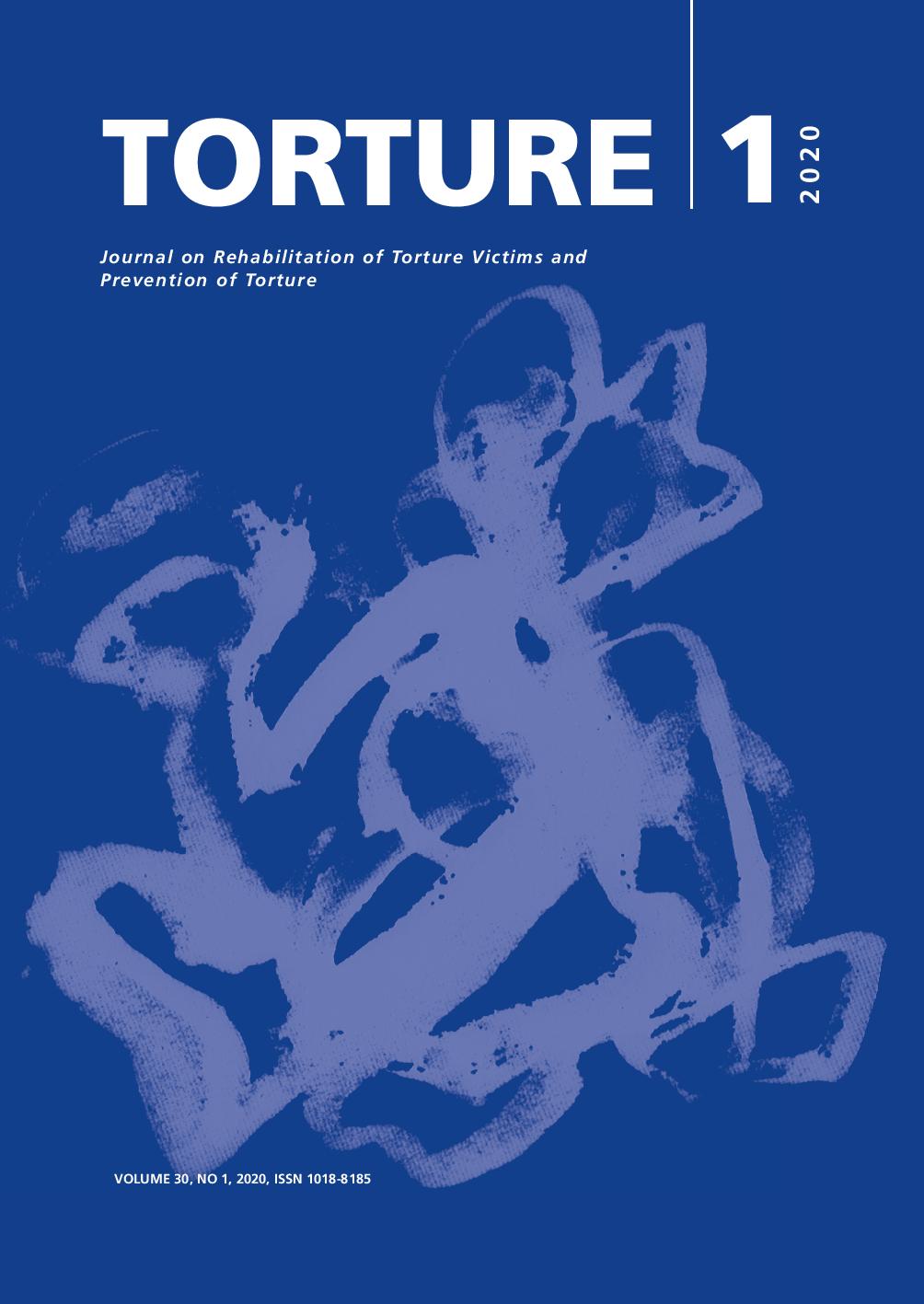Medical examination of detainees in Catalonia, Spain, carried out in the presence of police officers
DOI:
https://doi.org/10.7146/torture.v30i1.119257Keywords:
Institutional violence, Catalonia, Medical examinations, Police, Catalan independence movementAbstract
Introduction: On 14th October 2019, the Supreme Court of Spain issued a court judgment convicting social and political leaders in Catalonia, of crimes of embezzlement, sedition and disobedience. Following this, widespread protests in Catalonia began. During these protests, there were also numerous clashes between protesters and members of different Catalan and Spanish police forces, which ended with more than 600 people suf- fering injuries to varying degrees.
Method: Semi-structured interviews in prison (n=22) with people injured and detained during demonstrations.
Results: No detainees were informed of their right to a medical examination. 50% of detain- ees reported access to medical examinations in police custody. In all cases this was carried out in primary healthcare centres in the presence of police in the examination room. In all cases the report was given to the police instead of the detainee. The whereabouts of this docu- mentation is unknown despite attempts from the detainees and their lawyers to obtain them. 31% of detainees reported being medically examined in the courthouse, with police presence at all examinations. Finally, all detainees reported routine medical examinations at the entrance to prison for pre-trial detention, none of which were carried out in the presence of police forces. Detainees reported good treatment once in the prison.
Conclusion: The results show a serious breach of regional, national and international, regulations and in particular the Istanbul Protocol principles relating to the medical examination of detainees.
References
Committee for the Prevention of Torture and Inhuman or Degrading Treatment or Punishment (CPT) (2020) To the Spanish Government on the visit to Spain carried out by the European Committee for the Prevention of Torture and Inhuman or Degrading Treatment or Punishment (CPT) from 6 to 13 September 2018. https://rm.coe.int/16809a5597
Defensor del Pueblo (2019) Informe anual 2018. Mecanismo nacional de prevención. Supervisión de lugares de privación de libertad en España, de acuerdo con el Protocolo facultativo a la Convención de las Naciones Unidas contra la tortura y otros tratos o penas crueles, inhumanas o degradantes (OPCAT). https://www.defensordelpueblo.es/wp-content/uploads/2019/09/Informe_2018_MNP.pdf
Gallego, D. (2017) Posibles consecuencias jurídico- penales de la entrega definitiva de las armas por parte de la organización terrorista ETA [Possible criminal legal consequences of the final delivery of arms by the terrorist organisation ETA]. RJUAM, n.o 36, 2017-II, pp. 75-94
García, T (28th October 2019). Detenidos de excepción y heridos por balas de goma [Exceptionally detained and injured by rubber bullets]. El Salto. https://www.elsaltodiario.com/cataluna/detenidos-excepcion-represion-protestas-balas-goma-sentencia
Generalitat de Catalunya. Departament de Salut (2015) Carta de drets i deures de la ciutadania en relació amb la salut i l’atenció sanitària [Charter of Rights and Duties of Citizens in Relation to Health and Health Care]. https://catsalut.gencat.cat/web/.content/minisite/catsalut/ciutadania/drets-deures/carta-drets-deures.pdf.
Generalitat de Catalunya (2017). Informe sobre els incidents dels dies 1 al 4 d’octubre de 2017. Pacients atesos durant la joranda electoral i dies posteriors a conseqüencia de les càrregues policials de l’Estat [Report on the incidents from 1 to 4 October 2017. Patients treated during election day and subsequent days as a result of state police charges]. https://www.documentcloud.org/documents/4113650-232799c8-755f-4810-ba56-0a5bbb78609c.html#document/p3
Jones. S. & Burgen. S. (2017, Oct 2). Catalan referendum: preliminary results show 90% in favour of independence. The Guardian. https://www.theguardian.com/world/2017/oct/01/dozensinjured-as-riot-police-storm-catalan-ref-pollingstations
Palou, J. (2017). Violación de derechos civiles y políticos. Cataluña, Septiembre y Octubre de 2017 [Violation of civil and political rights. Catalonia, September and October 2017]. Iridia. http://iridia.cat/wpcontent/uploads/Informe-DDHH_1OCT-CAST.pdf
SIRECOVI (2019) Protocol of visits to people imprisoned since 14th October during social protests against Supreme Court ruling 459/2019. University of Barcelona. http://www.ub.edu/ospdh/sites/default/files/documents/publicacions/sirecovi._report_people_in_provisional_imprisoNment_after_social_protests_on_supreme_court_sentence.pdf
Supreme Court of Spain, 14 October 2019 (459/2019. Special Proceedings 20907/2017) Supreme Court of Spain. https://cdn.20m.es/adj/2019/10/14/4019.pdf. Available in English from http://www.poderjudicial.es/cgpj/es/Poder-Judicial/Noticias-Judiciales/El-Tribunal-Supremo-condena-a-nueve-de-los-procesados-en-la-causa-especial-20907-2017-por-delito-de-sedicion
United Nations (1999) Istanbul Protocol. Manual on Effective Investigation and Documentation of Torture and Other Cruel, Inhuman or Degrading Treatment or Punishment. Professional Training Series No.8/Rev.1. OHCHR. https://www.ohchr.org/Documents/Publications/training8Rev1en.pdf
United Nations (2015) Standard Minimum Rules for the Treatment of Prisoners (The Nelson Mandela Rules). United Nations. https://undocs.org/A/RES/70/175
Downloads
Published
How to Cite
Issue
Section
License
We accept that some authors (e.g. government employees in some countries) are unable to transfer copyright. The Creative Commons Licence Attribution-NonCommercial-NoDerivatives 4.0 International (CC BY-NC-ND 4.0) covers both the Torture Journal and the IRCT web site. The publisher will not put any limitation on the personal freedom of the author to use material contained in the paper in other works which may be published, provided that acknowledgement is made to the original place of publication.


